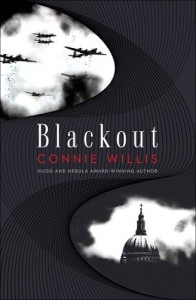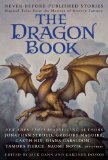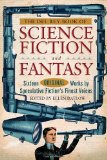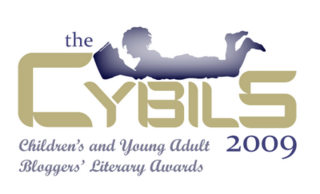 Alan DeNiro is a bit of a renaissance man, if there were lots of guys in the renaissance who wrote tremendously provocative poetry, short stories, and now– with Total Oblivion, More or Less (Amazon|Indiebound)–novels. He's also an all-around great guy. I've known Alan and admired his work for years, and was delighted to invite him to drop by during the Winter Blog Blast Tour to talk about his debut novel, which just received a STARRED review from Booklist, and which I absolutely ADORED and can't recommend highly enough. Total Oblivion, More or Less follows 16-year-old Minnesota girl Macy across a post-apocalyptic American landscape overrun by Barbarian hordes, and I guarantee it'll be one of the most memorable novels you encounter this year. If you don't believe me, it comes with recommendations from Dan Chaon, Hannah Tinti, and Karen Joy Fowler.
Alan DeNiro is a bit of a renaissance man, if there were lots of guys in the renaissance who wrote tremendously provocative poetry, short stories, and now– with Total Oblivion, More or Less (Amazon|Indiebound)–novels. He's also an all-around great guy. I've known Alan and admired his work for years, and was delighted to invite him to drop by during the Winter Blog Blast Tour to talk about his debut novel, which just received a STARRED review from Booklist, and which I absolutely ADORED and can't recommend highly enough. Total Oblivion, More or Less follows 16-year-old Minnesota girl Macy across a post-apocalyptic American landscape overrun by Barbarian hordes, and I guarantee it'll be one of the most memorable novels you encounter this year. If you don't believe me, it comes with recommendations from Dan Chaon, Hannah Tinti, and Karen Joy Fowler.
GB: I'm sure you can guess that the first question I'm going to ask is the process porn question. So, tell me about writing this novel–how was it different/the same as projects you've done previously? How is writing fiction different from writing poetry for you? Did you ever want to stab yourself in the eye, etc.? Were you thinking of certain books that you were in conversation with all along–Huckleberry Finn being the obvious, but are there others? Macy is a very convincing teenage voice; was it hard to nail that or did you just find that you had an inner teenage girl locked up inside?
AD: The process was both the same and very different from other things that I've written. For one, while writing this I was still learning as I went with novel-writing to begin with. Once the river established itself as one of the central anchors of the book, I figured it would help my sense of narrative to have the book begin at the headwaters and literally flow all the way down to the Delta. It gave me a structure that I could always rely on.
I wrote most of this novel in longhand, but a little less than halfway through I put it away for awhile. I had gotten stuck–looking ahead, I had no idea how the hell to structure the second half of the novel yet. I didn't work on it, really, for a year and a half. Then Hurricane Katrina hit, and with that–and its aftermath–I saw the novel in a different light. Rather, I knew I had to push the half-manuscript into our present circumstances, rather than a piece of speculation. Of course these horrific displacements with refugees take place all over the world, but the way Katrina's human disaster impinged on the American experience, and into the common thread of the nation's discourse…it kicked my ass and pushed me to finish the novel. The novel became much more political then; I worked in back and front story of Big Oil's exploits (so to speak) during the crisis. It became more pointed for me and it became far less of a stretch to write about Mississippian apocalypse, and also to people's oblivion to the political conditions that allowed such a disaster to take place in the first place.
In regards to poetry versus fiction… It took me a long time to realize it, but it was much, much easier to transition from poetry writing to short story writing than from short story writing to novel writing. Even though both forms of the latter are in prose, there was a much deeper rebuilding process with pacing and voice for me to write novels. At the same time my fiction has been influencing my poetry of late as well, as I've been trying my hand at longer, somewhat more narratively based poems (though I'd hardly consider them highly plotted epics!). 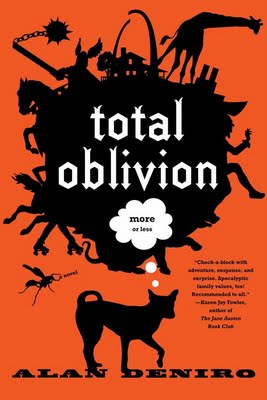
With books that influenced the writing of Total Oblivion, a few come to mind that are maybe a bit more oblique and might not be readily apparent in the novel (though, maybe so?). One of the big ones was Herodotus' Histories. The multivariant and ambiguous nature of history, and how it flows through Herodotus' telling, was a continual wellspring for the novel. Plus The Histories is dotted with these bizarre significant details that are full of mystery and speculation. Sarah Canary by Karen Joy Fowler was also a huge influence–naturally, of course, as being such an outstanding novel that you can just keep peeling back the layers to. You're not quite sure what's going on throughout. There's an Alice Munro novel I read in college, Lives of Girls and Women…extraordinary characterization of Dell (the protagonist) in that book. Finally, one of Paul Auster's less-known novels, In the Country of Last Things, published right after The New York Trilogy. It's a very dour yet evocative novel set in this allegorical city that's experiencing a horrific collapse–that book had a giant effect on me; I think it's one of Auster's best.
In regards to Macy's voice, I had a decent amount of–well, I guess you could call it practice, from writing short stories like "The Caliber" and "If I Leap" that had female teenage protagonists (albeit 3rd person, usually). But for me I think it's a little bit of both reading other books with strong voices of the opposite gender (i.e., Munro) and kind of rolling with the voice of the character on its own terms. Certainly there is some of "me" in the teenaged angst and isolation–which I was no stranger to! In the end, it's really her book–her voice called the shots and I went where she led me.
GB: This is your first published novel (though you also had an awesome short story collection with Small Beer, Skinny Dipping in the Lake of the Dead). Was there anything that surprised you during the publishing process, from submitting to agents to now, on the cusp of the book coming out?
AD: It was a long road with lots of ups and downs, which I'm sure many other people have had. It's hard for me to tell whether my experiences were "typical" or not. What surprised me most was how, when it did finally come together near the end and I got an agent and then sold the book, it really was fast. Or somewhat fast–again, it's hard to tell. But it was a rollercoaster before that (perhaps The Beast, one of my favorite coasters at Kings Island in Ohio, a fantastically long and wild ride?). Also, reviews have been somewhat surprising. I was, and am, fully prepared for some people not liking the book; which totally doesn't bother me, as long as the book is engaged with on its own terms. However, some of the reviews have emphasized the fast pace and gripping read aspects of the book. Well, that's gratifying at least! I am not usually known as "Mr. Plot." Usually in my stories, Plot is having a good, serene old time sitting on his living room floor, putting together a jigsaw puzzle or something, and all the sudden his friends Weird Shit and Unexplainable Things come bursting through the door and want to have a dance party RIGHT ON THE JIGSAW PUZZLE! Anyways, to move away from my metaphor spinning out of control, it is satisfying to know that the rounds and rounds of edits polishing and honing the narrative paid off with at least some readers.
GB: Macy brings two (arguably!) books along on the journey down the river, The Lord of the Rings and Sylvia Plath's The Bell Jar. Two questions, really: How hard was it to decide which books it'd be right for her to bring? And what books would you bring?
AD: This was an interesting back and forth for me…in an earlier draft of the novel, she brought the Gormenghast Trilogy, but I think in a later draft it was decided in copyedits that perhaps putting in the doorstopper of the Peake masterpiece was a little bit too clever for its own good. I think I had her take a different poetry or poetry-type book as well. And it was super-hard! It's an impossible decision for a reader like Macy, so I think she was looking for something that could more universally speak to her condition on the river. Something canonical. She would be very careful and not bring an "eh" book. For me, hmm, this is really a variation of the "desert island" question with an extra kick. Assuming I was fleeing for my life, I would probably bring: Gravity and Grace by Simone Weil, because she was writing it from her own wartime perspective and it's bizarrely comforting in an uncomfortable way; Herodotus' Histories, because that would seriously keep me busy for a while; and The New Penguin Book of English Verse–speaking of doorstoppers! But it's a great anthology.
GB: This is a post-apocalyptic world that scratches every post-apocalyptic itch I've developed from reading widely in that subgenre, but it also feels completely specific and very new. It's perhaps the first surreal post-apocalyptic meltdown story I've read where I also really felt the weight and the dread and the oddness of having everything become incomprehensibly strange. and disintegrate. Barbarians! How did you approach the worldbuilding? 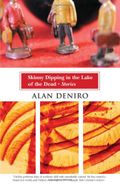
AD: I approached the worldbuilding from a very "don't try this at home, kids!" perspective. Though it would be cool to see or hear of others who wrote in this way; I'm sure I'm not alone. But essentially I really didn't do any traditional worldbuilding at all. I didn't have a set world–especially from the beginning–or a set causality. I had some basics about the invasion, and later in the book–when it took place in Nueva Roma and "settled down" a bit–I did a little more thinking through the architecture of the city. And with the bridging sections that aren't in Macy's voice, there are some snippets of worldbuilding. But for the most part I deliberately avoided any type of deliberate compendium of the world. I wanted to funnel the novel completely through Macy's perspective and her immediate experiences, so I myself didn't want to know what X really was, or what weird detail Y really meant. And for the most part, the characters kept moving down the river and the significant details weren't really dwelled upon. I did keep a notebook of notes, but they were very disconnected from any type of interconnected setting. They were more like "chickens with lettuce for wings" and "giraffes used as calvary." Images I wanted to throw in. I didn't necessarily know where I wanted to put them in the novel, but I put a little star next to the ones I did use. Of course, there WERE points in the book where I used the bridging chapters to provide commentary on some of the things that Macy experienced (such as the house/museum in Fortune City).
So, yeah, that was my worldbuilding. I've never been to a lot of the places set in the novel, especially further down the river, but I winged it the best I could, mutated the landscape when I had to, and kept writing. I think it helped create the sense of "haze" in the novel, the sense of out-of-control-ness that Macy experienced. It helped as a mimetic experience for getting into her voice. And incidentally, I wouldn't recommend doing this for every project. There are novels and stories where it does make sense to nail the minutiae down. But I think it would be a shame if EVERY novel had to have a mental, and highly detailed, atlas that went along with it.
GB: And, finally, the easy question–what have you been reading/watching/listening to that you love lately? Give us some recommendations.
AD: This is actually hard! Let's see, I just finished Vampire City written by Paul Feval and translated by Brian Stableford. Written in 1867, it's absolutely crazy–and actually kind of funny too; felt more like Lewis Carroll than Bram Stoker at some points. I'm reading a book called Hotel Crystal by Olivier Rolin–metafictional vignettes about hotel rooms around the world. Okay, it's much more interesting than I'm making it sound. I've also been making my way slowly through Orlando Furioso by Ariosto. A verse translation–a prose translation of a poem seems to me like a photograph of a sculpture. Anyway, it's a wild ride. A very very long, wild ride.
In viewing, I've been going through Lost; up to about Season 3.
I've also been playing some really enjoyable games–in the interactive fiction world, I'm in the middle of this REALLY long work called Blue Lacuna by Aaron Reed. It's a little twee and "soft focused" but incredibly well done, and very moving. I'd also highly recommend, on the completely other end of the spectrum, Dead Space: Extraction on the Wii. If you can handle space zombie violence and the pressure cooker of what is essentially a high-end shooting gallery game, it does some interesting things with POV, narrative control, and pacing. Finally, back to interactive fiction, I'm dying to play next this game called The King of Shreds and Patches by Jimmy Maher–Elizabethan Cthulu with a wicked cool graphical interface. Can't wait. Okay, that's a preemptive recommendation–hope that's okay?
For music, I've been listening to two back to back Can albums: Tago Mago and Ege Bamyasi. Superb writing music. I've also gone back and listened to a lot of my favorite albums from the decade for a top 20 list I compiled.
Visit today's other WBBT stops:
Lisa Schroeder at Writing & Ruminating
Joan Holub at Bildungsroman
Pam Bachorz at MotherReader
Sheba Karim at Finding Wonderland
R.L. LaFevers at HipWriterMama
